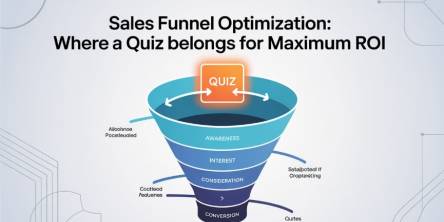How to Benefit from the Game-Changing Potentials of Flutter for Web

Businesses are constantly looking for ways to engage clients online. With the advancement of web development, solutions are readily available. Multiple frameworks and tools exist to create dynamic and responsive websites. Flutter has become one of the most powerful frameworks, creating both mobile and web applications. With help from a Flutter developer, any entity can transform its digital operations and performance. But what is all the fuss about Flutter?
What is Flutter for the web?
Flutter is an open-source user interface (UI) software development kit created by Google. It was originally designed for high-quality native interfaces for iOS and Android. Due to its wide adoption, Google widened its applicability to the web. This made it possible for developers to develop seamless web apps with the same codebase. Flutter enables the design of interactive and visually stunning websites that can be run seamlessly across different browsers and devices.
How does Flutter compare with the mobile version?
- Rendering Engine
On the mobile platform, Flutter employs Skia, a 2D graphics library, to render widgets. For the web, these widgets are rendered into HTML, CSS, and JavaScript to be web standards compliant.
- User Interaction
Mobile apps have access to platform-specific features, such as camera and GPS. Web apps, on the other hand, are confined to browser limitations, which can restrict some features.
- Navigation and Routeing
Web applications tend to need deep linking and browser history management, features that are addressed differently when navigating on mobile.
Benefits of Using Flutter for Web
- Lower development costs
Building a business website is crucial for a company to gain exposure in the digital landscape. The costs involved, however, can add up, especially with the integration of other tools and applications. This is where Flutter can help significantly lower expenses. How? By using a single codebase that applies to both mobile and web platforms. This will allow businesses to streamline the development process, reducing the resources, time, and effort required. No company would say no to this.
- Room for scaling up
Flutter boasts of cost and time efficiency, which makes it an excellent vehicle for product idea verification and proof of concept (PoC). No business wants to remain at the same level that they started in. There's always room for further development—new products, innovative solutions, etc. A PoC that is tried and tested to be achievable will pave the path for those developments. With Flutter already in place, it will be quicker and easier to develop an application that is fully operational and ready for distribution either via the app stores or on your website.
- Consistent user experience
Because a unified codebase is used, there's a uniform look and feel across platforms. A unified user experience, improved interactions, and a consistently user-friendly interface through their website migration and mobile app will mould the character of the brand and user satisfaction.
- Enhanced user experience
Customer satisfaction is at the forefront of any cost-effective digital marketing plan. Flutter helps through its pre-designed widgets that boost user engagement. Each widget is visually compelling, with fun animations and a diverse range of colours. They are designed with the philosophy of high customisation for a better overall experience. Widgets are also highly functional and responsive. Whether they are used on desktop or mobile, they ensure a consistent experience.
- Efficient maintenance process
Once a website or an application becomes fully operational, regular maintenance follows. In a traditional setup, you may be working with one or more developers to handle and manage the code. This can be hectic on your part because you're dealing with several individuals. A Flutter specialist, however, is all you need to maintain all Flutter-based apps and widgets on both mobile and web platforms.
The Truth about SEO and Flutter for Web
Even with all these benefits, Flutter has its share of challenges. One of these is search engine optimisation. Most content on Flutter web is rendered as images. Any SEO will tell you that indexing images effectively isn't always smooth sailing. This makes it difficult to find the web app using search engines. Plus, it's not possible to search or highlight text within apps made with Flutter. Under the circumstances, developers will have to consider which has more weight in the overall scheme of things—SEO or web applications. If optimisation matters more, they’ll need to find alternative solutions to optimise their web apps for search.
If you want to revolutionise your online presence, incorporating Flutter into your development strategy could prove beneficial. It's one way to develop a robust and responsive platform where you can interact with your clients. But you also need to consider the trade-offs before you make a final decision. For professional advice, consult with Rocket Lab. They specialise in crafting bespoke Flutter applications for the web, ensuring they meet all your business needs no matter how unique!
Similar Articles
It has been for everyone to see that the modern digital economy is distinguished by high volume, real-time financial transactions.
Business success has become reliant on efficiency and agility of the underlying technology infrastructure. Clearly, companies now depend on cloud computing to provide seamless services while managing exponential data growth.
Hospitals operate in environments where availability and patient safety are paramount at all times. As medical supply chains expand and regulatory oversight becomes more demanding, manual tracking methods introduce delays and risk.
Every sales funnel has one core goal: turn attention into revenue as efficiently as possible. Yet many funnels leak value at critical stages—visitors bounce, leads go cold, and sales teams chase prospects who were never a good fit.
Decentralized Finance (DeFi) has transformed how users earn passive income through blockchain-based financial systems. Among its most popular use cases,
Staying organized can feel like a full-time job. Between meetings, deadlines, and personal commitments, it’s easy to get overwhelmed.
Choosing the right GIS mapping software depends on what you need to accomplish. Some platforms cater to developers who want to build custom applications from scratch.
For data intensive industries such as insurance, the global business landscape is undergoing a profound transformation. Thanks to all the relentless technological innovation, this shift presents both significant challenges and unparalleled opportunities for modernization of the insurance sector.
Organizations are always looking for newer technologies to aid their operations. So, this hunt revolves around solutions that offer not only agility and scalability but are also cost-effective.









